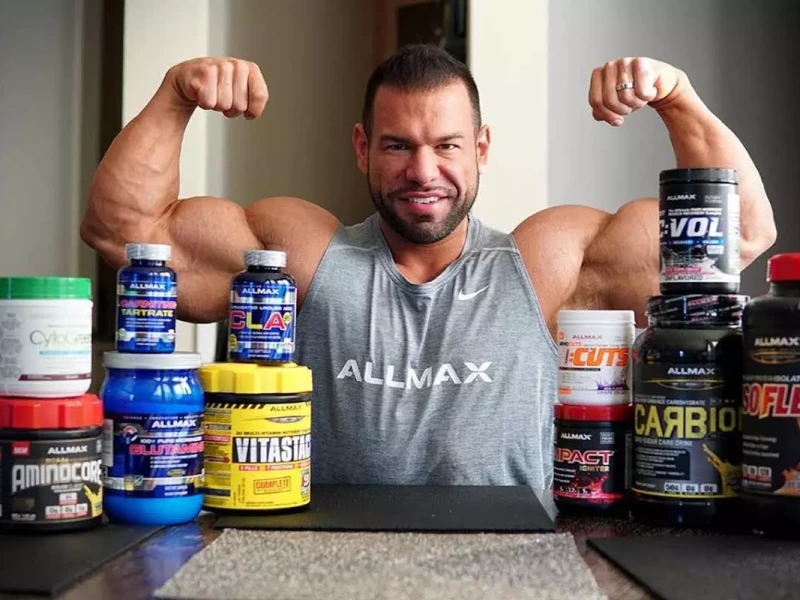
Exercising in Dubai's Hot Weather: Health Tips + Introducing Essential Supplements
Dubai and other Gulf cities are known for their extreme heat and high humidity for most of the year. In summer, temperatures often rise above 45°C, and humidity makes the heat feel even more intense. This combination forces the body to work harder to cool itself, leading to noticeable declines in athletic performance, dehydration, and in some cases, serious risks such as heatstroke.
Training under these conditions—even for highly experienced athletes—can be dangerous without preparation and safety measures. In this guide, we review the most important safety tips and methods to maintain performance in hot weather, as well as the role of sports supplements in Dubai for hydration, energy, and recovery, so that your workouts remain both safe and effective.
Challenges of Exercising in Dubai’s Heat
Exercising in Dubai, with its high temperatures and humidity, is very different from training in temperate or cold regions. These conditions place greater physiological and psychological stress on athletes, making proper training management essential.
Key challenges include:
- Early fatigue and reduced performance: Much of the body’s energy is redirected to sweating and cooling, leaving less for physical activity.
- Heatstroke and abnormal rise in body temperature: Symptoms may start as headaches or dizziness and, if ignored, can escalate to life-threatening conditions.
- Disrupted sleep and poor recovery: Hot nights interfere with quality of sleep, affecting muscle repair and energy restoration.
- Dehydration and electrolyte imbalance: Heavy sweating depletes sodium, potassium, calcium, and magnesium—essential minerals for muscle contraction, nerve transmission, and heart function.
- Increased nutrient and supplement needs: The body requires more protein, vitamins, and minerals to withstand heat stress and recover effectively.
Key Tips for Safe and Effective Training in Dubai’s Heat
1. Targeted Hydration
- Drink 400–600 ml of water or electrolyte beverages before workouts.
- Sip water or hydration drinks every 15–20 minutes during training.
- Avoid ice-cold water—opt for cool drinks that support natural cooling and digestion.
2. Choose Safer Training Times
- The best times are early morning or after sunset, when heat and sun intensity are lower.
- Avoid outdoor workouts between 10 am and 5 pm, when heat and humidity are at their peak.
3. Wear Light, Breathable Gear
- Loose, lightweight cotton or moisture-wicking fabrics aid cooling and sweat evaporation.
- Light-colored clothing absorbs less heat.
- Use a light cap and sports sunglasses for protection against direct sunlight.
4. Stay Alert to Heatstroke Symptoms
- Watch for headache, dizziness, nausea, red hot skin, or irregular heartbeat.
- Stop training immediately, move to a cooler place, and hydrate with electrolytes.
- Ignoring symptoms can lead to severe complications.
5. Adjust Training Intensity and Duration
- On extremely hot, humid days, replace intense long sessions with shorter workouts, light intervals, or low-intensity resistance/stretching.
- This reduces fatigue and dehydration, while supporting faster recovery.
6. Train in Controlled Environments
- Indoor gyms with strong ventilation or air conditioning allow you to train safely and with better focus.
The Role of Supplements in Hot-Weather Training

High heat significantly increases the body’s need for specific nutrients. Proper supplements can maintain performance and support recovery:
- Electrolytes & Minerals: Sodium, potassium, magnesium supplements help replace sweat losses, preventing cramps and performance decline.
- Proteins & Amino Acids: Whey protein and BCAAs (branched-chain amino acids) are essential for muscle protection and recovery.
- Multivitamins: Especially B vitamins, vitamin C, and vitamin D to support energy production and immunity.
- Hydration powders & sports drinks: Provide fluids, simple carbs, and electrolytes for quick rehydration and energy.
- Fatigue reducers: Beta-alanine, citrulline malate, and caffeine can delay exhaustion.
Eliwell’s product line is specifically tailored for athletes in hot and humid conditions, including:
- Fast-hydration powders and solutions
- Balanced electrolyte formulas (sodium, potassium, magnesium, calcium)
- Pure whey protein for muscle growth and recovery
- Essential amino acids to boost endurance and reduce fatigue
With Eliwell’s expert team, you can select the right supplement based on your training intensity, body condition, and Dubai’s climate.
Conclusion
Training in Dubai’s hot and humid weather is a real test of physical and mental endurance. Yet with smart timing, proper hydration, nutritional strategies, and the right supplements, you can turn this challenge into an opportunity to build strength and resilience.
Always put your health first. Consult your coach or nutritionist before changing your workout plan or supplement intake. Remember—listening to your body’s warning signals, respecting its limits, and following safety principles not only prevent injury but also help you enjoy safe, effective, and rewarding workouts—even in Dubai’s extreme climate.
FAQs
1. What is the best time to exercise in Dubai?
Early morning (before sunrise) or evening after sunset, when temperatures are lower.
2. Is outdoor training in Dubai’s summer dangerous?
Yes. Due to extreme heat and humidity, outdoor workouts can be risky. Indoor, air-conditioned facilities are strongly recommended.
3. How can I prevent dehydration during exercise?
Hydrate before training, sip electrolyte drinks during exercise, and replace lost fluids afterward.
4. Which supplements are best for training in Dubai’s heat?
Electrolytes (sodium, potassium, magnesium), hydration powders, whey protein, BCAAs, and multivitamins.
5. What are the symptoms of heatstroke, and what should I do?
Symptoms include headache, dizziness, nausea, red/hot skin, and rapid heartbeat. Stop immediately, move to a cool place, and drink fluids.
6. Is it safe to take supplements without consulting a professional?
No. Dosage and choice depend on body condition, training intensity, and health status. Always consult a nutritionist or trainer first.










Reviews
Please submit your comment.
It will be displayed after the approval of admins.
To do this, please login first
No comment submitted yet